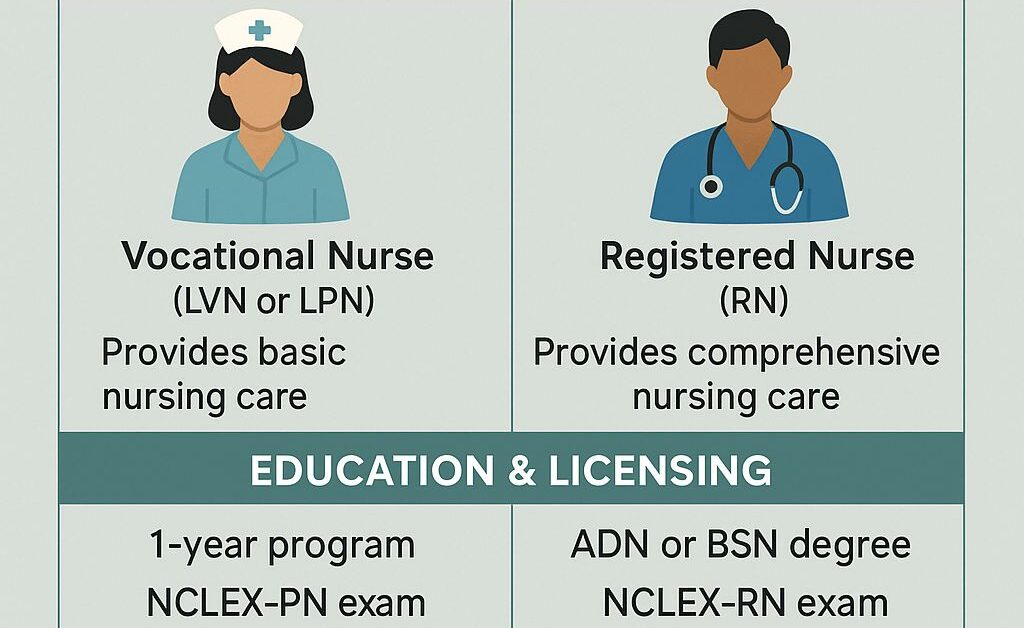Two prominent certifications in Nigeria are the Trade Test Certification vs NVQ, (the National Vocational Qualification). This comprehensive guide dives deep into both, offering real-life examples, actionable steps, and expert-backed insights to help you decide which certification best aligns with your goals.
In Nigeria’s evolving job market, possessing a skill is commendable—but having a recognized certification to validate that skill is even more crucial. Whether you’re an experienced artisan or an aspiring professional, choosing the right certification can significantly impact your career trajectory.
What is Trade Test Certification?
Trade Test Certification is a government-issued credential that validates an individual’s proficiency in a specific trade. It’s administered by the Federal Ministry of Labour and Employment and has been a cornerstone in Nigeria’s vocational landscape since 1946.
Levels of Trade Test Certification
Trade Test Certifications are divided into three progressive grades:
- TT3: Entry-level for individuals with basic competence.
- TT2: Intermediate level for moderately experienced candidates.
- TT1: Advanced level for highly experienced professionals.
Common Trades Covered
The certification covers a wide array of trades, including:
- Electrical Installation
- Plumbing
- Carpentry
- Welding
- Auto Mechanics
- Tailoring
- Beads Making
- Poultry Farming, among many others.
See full list of trades and hand works in Nigeria, if you can not find your hand work here, please reach out to us in the comment section below.
Why Choose Trade Test Certification?
- Skill Validation: Demonstrates your expertise to employers and clients.
- Improved Employability: Boosts your chances of getting hired, especially in Nigeria’s informal sector.
- Credibility: Establishes trust and confidence in your work.
- Career Advancement: Qualifies you for promotions and better pay.
See other benefits of having a trade test certificate.
How to Get Trade Test Certified: Step-by-Step
- Identify Your Trade: Choose your area of expertise.
- Locate an Accredited Center: Visit TradeTest.ng to find approved centers.
- Register and Schedule Exam: Pay the applicable fees (₦5,000 to ₦30,000).
- Prepare for Exam: Some centers offer short preparatory classes.
- Take Exam: Exams cover both theory and practical skills.
- Receive Certificate: If successful, you’ll be awarded the appropriate grade.
What is the National Vocational Qualification (NVQ)?
The National Vocational Qualification (NVQ) is a structured certification under Nigeria’s National Skills Qualification Framework (NSQF). It’s regulated by the National Board for Technical Education (NBTE) and combines both classroom learning and on-the-job competency assessments.
Structure of NVQ
NVQs are organized into levels:
- Level 1–2: Entry and intermediate level.
- Level 3–5: Advanced and supervisory levels.
Industries Covered
- Information and Communication Technology (ICT)
- Hospitality and Tourism
- Mechanical Engineering
- Construction
- Health and Social Care
Why Choose NVQ?
- Comprehensive Learning: Combines theory and practice.
- National and International Recognition: Useful for jobs abroad.
- Career Growth: Opens doors to formal employment and leadership roles.
- Pathway to Lifelong Learning: Enables you to pursue higher education or more advanced technical training.
How to Enroll in NVQ: Step-by-Step
- Choose a Field: Pick a trade or profession you’re interested in.
- Find an Accredited Institution: Search NBTE-approved centers.
- Apply and Register: Fill application forms and pay fees (₦50,000 and above).
- Attend Classes and Training: Involves practical learning and mentorship.
- Undergo Assessments: Pass competency-based assessments to qualify.
- Get Certified: Certificates issued by NBTE are nationally recognized.
Trade Test Certification vs NVQ: Side-by-Side Comparison
| Feature | Trade Test Certification | National Vocational Qualification (NVQ) |
|---|---|---|
| Administering Body | Federal Ministry of Labour and Employment | National Board for Technical Education (NBTE) |
| Structure | Three Grades (I, II, III) | Levels 1 to 5 |
| Assessment | Practical and theoretical exams | Competency-based assessment |
| Duration | Short-term (varies by trade) | Long-term (6 months to 2 years) |
| Cost | ₦5,000–₦30,000 | ₦50,000+ |
| Recognition | Widely accepted in Nigeria | National and international recognition |
| Ideal for | Skilled artisans with experience | Learners seeking structured training |
Real-Life Scenarios
Musa, the Experienced Welder
Musa had 10+ years of welding experience but lacked formal certification. He opted for the Trade Test, passed Grade I, and soon landed larger contracts thanks to the trust his certificate earned him.
Chioma, the Aspiring Hospitality Manager
Chioma enrolled in an NVQ Level 3 program in hospitality management. The combination of training and certification helped her secure a managerial role in an international hotel chain.
Which Should You Choose?
Go for Trade Test Certification if:
- You already have hands-on experience.
- You need quick and affordable certification.
- You’re targeting Nigeria’s informal job sector.
Choose NVQ if:
- You’re looking for structured learning and mentorship.
- You aim to work in the formal or international sector.
- You’re focused on long-term career progression.
Bonus: Checklist to Help You Decide
✅ I already have years of experience in a specific trade.
✅ I want quick certification to boost my earnings.
✅ I need international recognition for a professional career.
✅ I’m willing to invest time in structured training.
✅ I prefer practical, hands-on learning environments.
The more boxes you check under a certification, the clearer your choice becomes.
Frequently Asked Questions (FAQs)
1. What is the difference between Trade Test Certification and NVQ in Nigeria?
Trade Test validates existing skills, while NVQ provides structured training and competency-based assessment.
2. Which is better: Trade Test Certification vs NVQ
It depends on your goals. Trade Test is great for quick validation; NVQ is ideal for structured career paths.
3. Can I use Trade Test Certification to get a job abroad?
Mostly recognized in Nigeria; NVQ offers broader international acceptance.
4. Who is eligible for Trade Test Certification?
Anyone with practical experience in a skilled trade.
5. What is the cost of obtaining each certification?
Trade Test: ₦5,000–₦30,000; NVQ: ₦50,000 and above.
6. How long does NVQ take?
Between 6 months to 2 years, depending on the level.
7. Can I upgrade from Trade Test to NVQ?
Yes. Experience from Trade Test may fast-track your NVQ journey.
8. Are both accepted by employers?
Yes. Trade Test is favored in informal settings; NVQ in formal and corporate sectors.
9. Is NVQ recognized internationally?
Yes, particularly if issued by NBTE-accredited institutions.
10. Where can I apply for these certifications?
Visit TradeTest.ng for Trade Test info. For NVQ, explore NBTE-accredited centers.
Final Thoughts
Both Trade Test Certification and the NVQ offer valid, respected pathways for advancing your vocational career in Nigeria. The choice depends on your current experience, career goals, and the level of investment you’re ready to make.
Whether you’re formalizing existing skills or beginning a structured learning path, the right certification can open doors you never thought possible.
Take the Next Step
Ready to elevate your career? Visit TradeTest.ng to explore more about Trade Test Certifications and find resources to guide you through the certification process.
Note: For the most accurate and up-to-date information, consult the official websites of the Federal Ministry of Labour and Employment and the National Board for Technical Education (NBTE).









